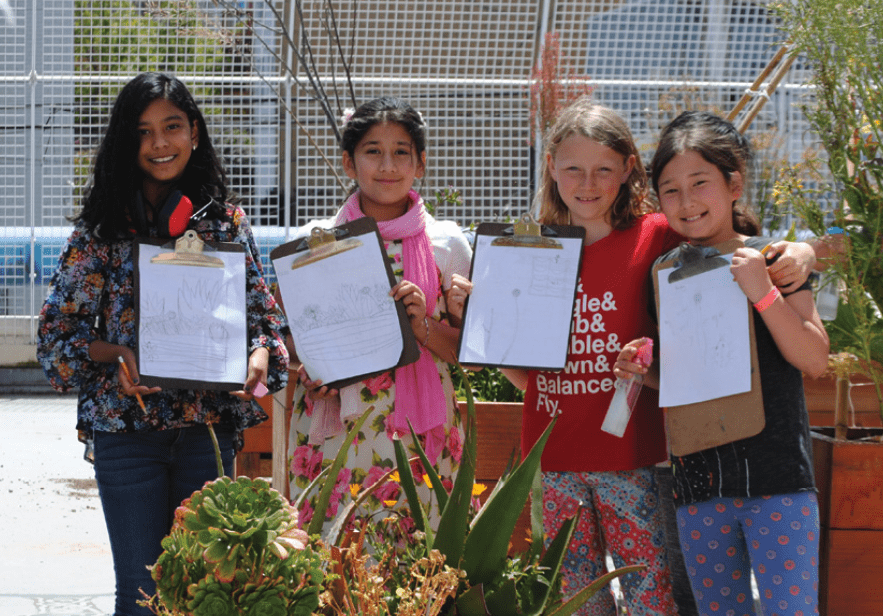People living in Imperial County have some of the highest rates of asthma in the country, and airborne pollutants from the nearby Salton Sea are a big part of the problem. The majority-Hispanic agricultural community, which already contends with low-paid farm labor, low adult education levels, and high unemployment, also must deal with the externalities of the very farms where many work harvesting sugar beets, lettuce, cantaloupe, and other crops.
Specifically, approximately 15.1% of Imperial County residents suffer from asthma, compared to approximately 8% nationwide, according to a recently released air quality study from the civic engagement nonprofit organization Comite Civico Del Valle. José Flores, a research and advocacy specialist at Comite Civico, said the poor air quality in the area is to blame, particularly its proximity to the Salton Sea. The contaminated, highly saline lake is about ten miles from Brawley, where Comite Civico is based. Pesticides and other agricultural chemicals have long polluted the lake, and for more than twenty years, as parts of the lake have dried up, those pollutants have created toxic dust that contaminates the air in nearby communities.
“They have drainage systems that dump (pesticides) into this lake, and as it recedes, these toxins are airborne, and they get into our lungs,” Flores said. “So one of the issues is trying to mitigate or solve the issue of the Salton Sea, how we can improve the air quality.”
Comite Civico Del Valle’s recently released report, the Salton Sea AIRE study, aims to assess the impacts of chronic exposure to particle pollution on long-term respiratory health and allergy-induced conditions in elementary-aged children.The California Asthma Dashboard and Tracking California Astham map provides a visual view of their research. As part of the study, Comite Civico established community air monitoring networks in conjunction with the Allies In Reducing Emissions (AIRE) Collaborative. The study also seeks to build an evidence base to inform the participation of families in decision-making processes on the Salton Sea and expand the capacity of local institutions and residents to meaningfully address environmental health disparities. Flores, a longtime member of CAELI’s Equity Innovation Hub, has relied on the initiative’s resources in his role at Comite Civico and his previous profession as a teacher.
An agricultural community with environmental concerns
Flores along with Executive Director Luis Olmedo and others at Comite Civico, which is a grassroots organization founded in 1987, have deep ties to the area that inform the organization’s community-driven approach. For instance, like many in Brawley and the wider Imperial Valley, Flores was a migrant student. His parents, who had only a second-grade education, came to the area from Mexico looking for a better life working in the fields. Flores grew up in Brawley and ended up being the first in his family to go to college.
“I was the first to get a job that kind of made our family middle class, so it was a drastic change for us,” Flores said. “And I’m still humbled by being able to relate to the people in our community, which are migrants, which are field workers, that make minimum wage.”
Flores taught U.S. history and government for twenty-seven years before beginning his current role with Comite Civico two years ago. However, his involvement with the organization goes back to his teaching days. The Comite Civico building is a quarter mile from the high school where he taught, and Flores said he would bring his students there on a weekly basis to enrich their learning and address firsthand what was going on in the community. Flores said beyond the impact on their parents, many young people in Brawley also help in the fields on breaks from school, and the health impacts of pesticides were a big concern.
“A lot of them are field workers, migrant students. They are directly related to some of the issues in our community,” Flores said. “Dealing with pesticides that affect them physically, not only their parents, but also themselves when they work on weekends, or when they work on vacation, whether it’s Christmas or whether it’s Thanksgiving. A lot of these kids go out and work in the fields. And a lot of them were being affected due to the pesticides.”
He said Comite Civico’s focus on collaborative civic engagement influenced the way he taught so much that eventually he was no longer directly using the textbook. Instead, he said he used real-world issues from the community to cover the standards in a hands-on way that was no longer abstract for his students.
Educating and involving the community on the issues that impact their lives forms the basis of Comite Civico’s projects, programs, and policy initiatives. For air quality as well as other efforts, Flores said Comite Civico looks for the community to guide or lead the process.
“We never speak for the community without first getting direct feedback from them,” Flores said. “And if they are willing to participate themselves, personally, and they themselves deliver the message, that’s our number one goal.”
CAELI as a resource
Throughout his time as both a teacher and a research and advocacy specialist with Comite Civico, Flores said CAELI has been an invaluable asset. He said even though he does not have a background in sciences per se, through CAELI, he’s built direct relationships with people who could provide him the information and resources he needed. He said for a community that lacks in so many regards, that asset is sorely needed.
“If I get stumped by a question by a local educator that is beyond my wheelhouse, I have a direct contact with people that can, within a couple of minutes, respond to me and be willing to assist,” Flores said. “So just a plethora of resources, and the context, the human context, are immeasurable to our community, which is lacking in many regards.”
These resources are key as the Comite Civico works to mitigate air quality and other environmental issues that Brawley and Imperial County as a whole must contend with. Another Comite Civico program, Youth Environmental Health Internship (YEHI), provides internships for high school students around Imperial County to become the next leaders in environmental health. As part of the program, student interns acquire knowledge related to air quality, advocacy, environmental justice, and the policy-making process. They also learn about the Identifying Violations Affecting Neighborhoods (IVAN) Air Monitoring program to inform and educate the community about air quality and how to sign up for air quality alerts.
Flores said information about the air quality alerts is communicated to local educators, who can use the real-time information when making decisions, such as whether to have recess or other outdoor activities at certain times so as to not aggravate asthma. Beyond mitigation, Flores also hopes Comite Civico’s efforts and the knowledge base he has access to through CAELI will help prevent additional contamination from another industry poised to come to the area—lithium extraction.
Lithium extraction on the horizon
Enormous lithium deposits have been located near the Salton Sea, which the California Energy Commission estimates are large enough to supply forty percent of the world’s lithium demand. While the technology to extract lithium at scale is still being developed, many companies, both national and international, are coming to the area with that goal.
Historically, lithium mining has been environmentally harmful and water intensive, but the companies are pursuing better recovery methods. With efforts already underway by a few companies, Comite Civico has formed a Lithium Valley Community Coalition, and Flores said the goal is to educate the community about what is happening and advocate for their best interests, including that companies make local hires and that extraction does not cause more environmental harm or take from the community’s valuable water supply. He says Comite Civico wants to ensure a mutually beneficial relationship, rather than the detrimental and purely extractive colonial model of the past.
“They come and extract, but the community takes on all the negative effects of these industries and they never benefit in the economic arena,” Flores said. “…So what we’re fighting for is, first of all, that it’s done properly, that they don’t come over here and contaminate our air further or take our water. And at the same time, we’re trying to get these jobs that they promise are going to come in the thousands.”
A brighter, healthier future
With the lithium industry on the horizon, Comite Civico is also working to get a jump start on ensuring the community is not excluded from the benefits in a broader sense. One of the main uses of lithium is for batteries, including those used to power electric vehicles. However, Flores points out that Imperial County has the lowest rate of electric vehicle chargers per capita of all fifty-eight counties in California. He said Comite Civico found there were only about 1.5 chargers in the entire county, which pales in comparison to other counties that have hundreds and even thousands of charging stations.
Flores said that considering that some research has shown that putting 100 electric vehicles in a community can lower asthma rates by three percent, the disparity in charging infrastructure comes full circle when it comes to the air quality in Imperial County and its impact on asthma rates. That’s why Comite Civico’s Lithium Valley Community Coalition has launched a campaign to install forty publicly accessible charging stations in Imperial County. In addition to reducing harmful air pollution, the project aims to produce local green jobs, boost tourism, and create STEM Education Opportunities. In a related initiative, Comite Civico is also an outreach partner for the Access Clean California program, a statewide project that helps income-eligible residents apply for grants and rebates for hybrid and electric vehicles.
Flores said the electric charger project is moving forward, with the first station recently installed in Brawley.
“It’s right behind me, and it’s the only level two charger in our entire city, which is about 30,000 people,” Flores said, noting that there is no fee for community members to use the charger. “Our model was not to make a profit off the community. Our model is to assist them with the infrastructure that they desperately need.”
As Comite Civico’s efforts continue into the future, Flores says he hopes to see both the community and the organization become more youth-oriented. He’d like to see more teenagers and people in their twenties, including college students and recent graduates, advocating for their community and working to improve their environmental and economic conditions.
“They themselves take the mantle and continue the stewardship of our environment, our legacies of farmworkers, migrant workers, people working in the fields, and continue to improve their conditions,” Flores said. “To get to the point where, if this lithium does come to fruition, Imperial County is no longer labeled as underserved, underprivileged, overburdened, etc. Where we’re partaking in the middle-class life—while not only mitigating but improving our environmental issues.”







